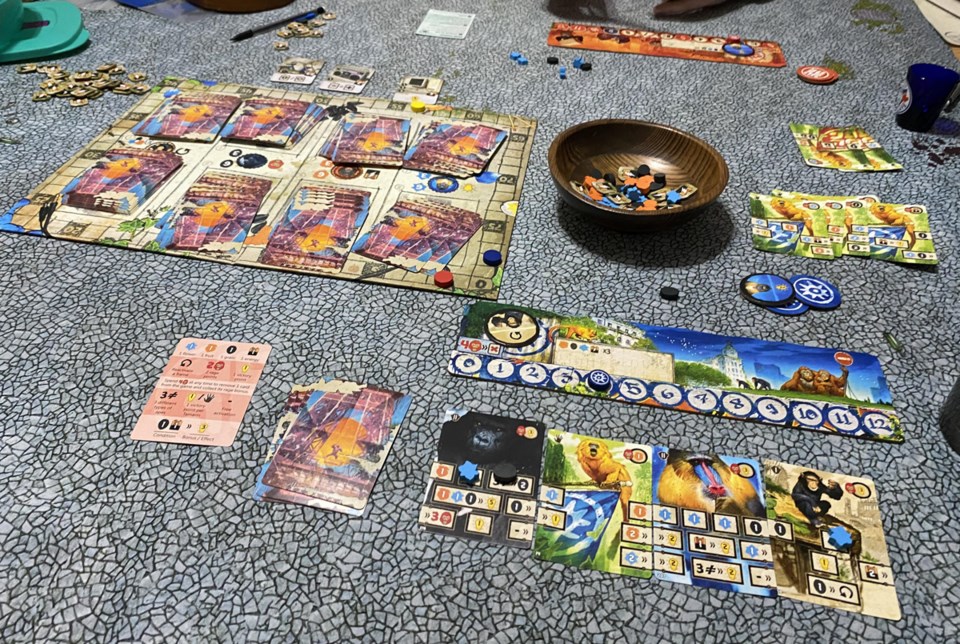YORKTON - After Us is a game which I personally was looking forward to getting to the table.
The game is a recent release from designer Florian Sirieix, and artist Vincent Dutrait from publisher Catch Up Games.
Dutrait’s art is fantastic, but because they are so nice you’ll wish for a bit more diversity.
So, the year is 2083.
“Humanity has been extinct for several decades, notes the rule book.
In this resurgent world, apes have kept evolving.
So much like Planet of the Apes to which at least a rudimentary comparison is natural apes have been gathering in tribes.
In this game you are the leader of such a tribe and you are trying basically to be the most successful – in game terms reaching 80 points first.
After Us is a deck building and resource management game.
So let’s start there. As a group The Meeple Guild likes deck builders. But After Us is a bit different in that it is what we might term a ‘blind builder’.
You spend acquired resources to acquire new apes but you draw from decks with the actual ape and its specific card features unknown. It’s harder to ‘build a deck’ with random cards. It is as a result at times frustrating compared to other deck builders.
In terms of resource management you are ’chaining’ four cards per turn and collecting those resources based on the complete connections made. Being able to arrange the four cards to the best advantage for what you are trying to achieve on a turn is the best aspect of the game.
On a turn you get to take a lot of resources from the pools; flowers, fruits, grains and batteries. So you are reaching across the table at the same time as other players as turns are simultaneous. Hands bump, you have to wait, it’s frustrating.
Then you take the resources spending them to acquire new apes and back they go to the pool.
The wooden pieces – except the cardboard batteries for some reason – are nice, but the play is finicky.
We finally split up the resources giving each player a ‘mixed’ bowl they could draw from and that helped – a lot.
It works because After Us is very much a solitaire effort. You do your own thing with only one game aspect that has a modicum of interaction – spending resources to copy what others are doing in a single game aspect.
Still the initial play-through was solid, the scores close, and likely closer still as post-game discussion brought to light a few points some likely missed.
There is a ‘point salad’ aspect to After Us. You can score points in a lot of ways.
The first play wasn’t so grand we weren't in love with After Us, but it was getting solid feedback around the table.
Then we played again.
Things were going nicely. It is fun gaining gorillas to do one thing, then opting to add a mandrill or orangutan, and the great art makes a mixed card array of apes very nice.
Then I looked up – it was round five or six – and Adam was 31 points ahead. The game was essentially over.
How?
Well he opted for nothing but chimpanzees, and the points exploded. Good on him for finding a way to victory, but with basically zero player interaction there is no way to stop the plan from working again and again – apart from some bad card pulls on his side.
This game shone on first blush because as a point salad the run to 80 was a close affair. A point here or there mattered.
If you can focus on just chimps and run the board the game feels broken. The result was disheartening. The desire to play again low. The overall feel for the game crashed, to where a recommendation which was obvious after game one becomes far more difficult to give.






